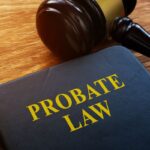Some probate processes can be handled without a lawyer. Lawyers are, however, necessary when dealing with large estates or estates that contain special assets, such as ongoing businesses. The ultimate decision to hire a probate lawyer or not requires a person to answer these frequently asked questions. If the person answers most of the questions with a “no,” then that person needs to work closely with a lawyer when wrapping up the estate. Can the Decedent’s Assets Avoid Probate? The … [Read more...]
Search Results for: probate
How Is Upside-Down Property Handled in Probate?
When dealing with upside-down real property in probate, an Executor has a fiduciary responsibility to pay off debts of the United States (tax debts) first. This is an arduous task, considering that the debts are more than the estate value. Once tax debts are paid off, the rest of the debts are divided into the following categories: Administration Expenses: This category consists of reasonable compensation of Executors, attorney fees, and out-of-pocket expenses like bank fees and recorder … [Read more...]
Get the Answers to FAQs About Probate in Illinois
Probate is a difficult legal process, and many questions emerge during the administration of the decedent’s estate. The following are answers to some of the most frequently asked questions about probate law in Illinois: When Does Probate Come into Force? Once a person dies, his or her estate goes into probate. In Illinois, the formal probate process is usually compulsory if: The estate comprises assets individually owned by the decedent; andAll estate assets are worth over … [Read more...]
What Is a Probate Caveat?
A probate caveat is a formal notice questioning the authenticity of the will and requesting the court to halt the probate process until the issue is resolved. The purpose of this notice is to keep the proposed administrators or executors from obtaining permission to administer the deceased person’s estate assets until the dispute raised by the person who filed the caveat is resolved. Who Is a Caveator? A caveator is a person who lodges the probate caveat. The caveator presents his or her … [Read more...]
Your Retirement Accounts May Not Need to Go Through Probate
Retirement accounts have the potential to bypass the cumbersome process of probate if beneficiaries are chosen strategically. It’s important to name primary and alternate beneficiaries, provide property management for minor beneficiaries, and review beneficiary information annually or after any major life changes to ensure designations are up-to-date. When an account holder dies with funds remaining in his or her retirement accounts, those funds are usually passed to beneficiaries without … [Read more...]
Frequently Asked Questions about the Illinois Probate Process
In most instance, after a person dies in Illinois, the decedent’s estate goes into probate. As an experienced estate planning lawyer, Marc Blumenthal knows the ins and outs of the Illinois probate process and, in this e-book, he answers some of the most frequently asked questions about the Illinois probate process. When Does Probate Apply? In most cases, a decedent’s estate will go into probate after he or she dies. Generally, the formal probate process is necessary in Illinois if: The … [Read more...]
What Are Executor Duties in Illinois Probate?
Pen laying on top of a Will for estate planning An executor in Illinois probate is given significant responsibilities when administering an estate. Since a violation of an executor's duties can result in the imposition of harsh penalties, it is vital that the executor become familiar with what is expected. What is an Estate Executor? An executor of an estate is someone who is named in a person’s last will and testament to act as his or her personal representative through the probate … [Read more...]
How Are Probate Claims Paid in Illinois?
Ordinarily, when someone dies in Illinois, creditors are given the opportunity to file claims against that person's estate, valid claims are paid, and remaining assets are distributed in accordance with the will or state law. To receive payment, creditors must file claims within a specified period and follow the correct procedures for filing. Creditors have two years from the date of the decedent’s death to file a claim against an estate. The requirements for filing claims is relatively lax … [Read more...]
Do You Need to Reopen Probate?
Once a probate estate has been fully administered and the case has been closed, it typically stays closed, but in a handful of situations, it may make sense to reopen probate. Reasons to Reopen Probate Illinois has very broad probate laws that regulate when an estate may be reopened. Under the Illinois Probate Act, an estate can be reopened at any time if a portion of the estate was never settled, if new assets, creditors or wills were discovered, if an heir was not notified of the opening … [Read more...]
These Six Types of Property Won’t Need to Go through Probate
Non-probate assets are types of property that won't have to go through the probate process after a person dies, and will instead pass directly to the intended heirs shortly after death. Avoiding probate saves time and money, but non-probate property can sometimes pass to unintended beneficiaries and creditors. Careful estate planning is essential to avoid probate and still protect assets from transferring into the wrong hands. Which Assets Are Not Generally Subject to Probate? Transfer or … [Read more...]
















